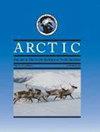海洋资源管理政策支离破碎导致因纽特人粮食不安全?Nunatsiavut的新经验
IF 0.8
4区 地球科学
Q4 ENVIRONMENTAL SCIENCES
引用次数: 4
摘要
从历史上看,北极的因纽特人社区在很大程度上依赖其沿海水域的海洋生物资源来获取营养,支撑社区凝聚力,增强个人和集体福祉。对沿海海洋种群的状况及其动态了解不足,加上过去失败的渔业管理做法,现在威胁到安全获得这些资源以获取食物和营养。我们研究了加拿大现代联邦粮食和海洋资源管理政策的一体化程度,这些政策迄今为止一直无法减轻北极地区的粮食不安全,这表明需要治疗病因而不是症状。利用拉布拉多北部努纳齐亚武特的证据,我们评估了海洋资源管理对传统重要食物来源获取的影响。我们探讨了增加自给性收成和增加商业渔业准入的潜力,以缓解因纽特人的粮食不安全,主张扩大海洋资源评估、更加集中的渔业管理以及与旨在缓解粮食不安全的政策相结合的相关性。至关重要的是,缺乏追踪当地捕捞海洋资源变化的方法,不仅威胁到个人和家庭营养,也威胁到因纽特人社区的社会、经济和文化完整性。我们进一步描述了监测的必要性,并建议使用指标来捕捉当地捕捞的海洋资源对加强粮食安全的贡献,同时建立一个能够利用当地知识和观测结果的框架。根据努纳齐亚武特研究的新经验教训,我们为更好地理解导致拉布拉多-因纽特人粮食不安全的政治和体制遗产奠定了基础,并讨论了粮食和海洋资源管理政策的更深入整合如何有助于缓解这一问题。本文章由计算机程序翻译,如有差异,请以英文原文为准。
Inuit Food Insecurity as a Consequence of Fragmented Marine Resource Management Policies? Emerging Lessons from Nunatsiavut
Historically, Inuit communities of the Arctic have relied significantly on the living marine resources of their coastal waters for nutrition, underpinning community cohesion and enhancing individual and collective well-being. Inadequate understanding of the conditions of coastal marine stocks and their dynamics, along with failed past fisheries management practices, now threatens secure access to these resources for food and nutrition. We examine the degree of integration of modern Canadian federal food and marine resource management policies, which heretofore have been unable to lessen food insecurity in the Arctic, suggesting that causes rather than symptoms need to be treated. Using evidence from Nunatsiavut, northern Labrador, we assess the limits to marine resource governance affecting access to traditionally important food sources. We explore the potential for both increased subsistence harvests and enhanced access to commercial fisheries in mitigating Inuit food insecurity, arguing for the relevance of expanded marine resource assessments, more focused fisheries management, and integration with policies designed to mitigate food insecurity. Crucially, the absence of methods for tracking changes in locally harvested marine resources threatens not only individual and household nutrition but also the social, economic, and cultural integrity of Inuit communities. We further describe the needs for monitoring and propose the use of indicators that capture the contributions of locally harvested marine resources to increased food security along with a framework that allows for utilizing local knowledge and observations. Relying on emerging lessons from research in Nunatsiavut, we build a foundation for a better understanding of both the political and institutional legacies that contribute to Labrador Inuit food insecurity and discuss how the deeper integration of food and marine resource management policies could help mitigate it.
求助全文
通过发布文献求助,成功后即可免费获取论文全文。
去求助
来源期刊

Arctic
地学-环境科学
CiteScore
2.30
自引率
0.00%
发文量
51
审稿时长
6-12 weeks
期刊介绍:
Arctic is a peer-reviewed, primary research journal that publishes the results of scientific research
from all areas of Arctic scholarship. Original scholarly papers in the physical, social, and biological
sciences, humanities, engineering, and technology are included, as are book reviews,
commentaries, letters to the editor, and profiles of significant people, places, or events of northern
interest
 求助内容:
求助内容: 应助结果提醒方式:
应助结果提醒方式:


